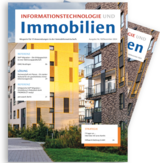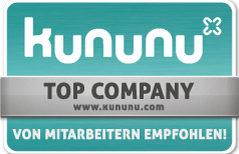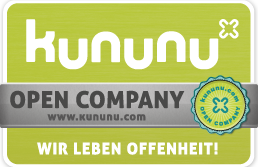“Corona is making things more digital” – Insights from a software provider for real estate management

When the Berlin wall fell in 1989, Jens Kramer was studying electrical engineering. But as German reunification got underway, different kinds of talent were in demand. By coincidence more than anything else, the young university student landed a job creating a property database for Berlin. This was his first contact with the real estate industry. He expanded his software experience at the telecommunications division of the conglomerate Veba (now Eon) until 1998, when he and his colleagues made the leap to self-employment and founded PROMOS consult.
TPP: Mr Kramer, how would you explain to a new neighbour what PROMOS does?
Jens Kramer: We develop software for real estate companies. Our programs make it easier for housing companies to plan new constructions and renovations and control the associated processes. Tenant management is simplified. Our SAP-based system delivers information on all rental processes, from advertising for re-letting to the handover of keys and later on all invoices related to the rental relationship as well as reported defects and their rectification status. In a nutshell: we digitise what has only been done manually up to now.
TPP: Please illustrate this digitisation process through an example.
Kramer: Let’s take the job of the caretaker. They have different paper forms for their various tasks. Previously, upon getting a call from a tenant reporting a dripping tap, they would make a note of the name, address, phone number and the defect on a piece of paper. They would then call the building owner and determine who to commission with the repairs before finally coordinating an appointment between the tenant and craftsman by phone and using lots of paper. Today though, caretakers, tenants and craftsmen have an easysquare app and the entire process is simpler for everyone involved. The tenant takes a photo of the dripping tap and sends it to the caretaker. They immediately have the tenant’s name and contact data and recognise the defect from the photo. After consulting the owner, they use an electronic information system to send the order to a company that is also electronically connected. The hired craftsman and the affected tenant can subsequently set an appointment electronically. The process is quicker and less stressful for everyone.
TPP: How does this benefit the landlord?
Kramer: Customers in the housing industry have reported time savings of up to 50 percent. But the app’s ability to eliminate sending paper documents to the tenant also brings enormous savings potential.
TPP: Your solution for the housing industry is based on SAP. Is this only interesting for landlords with several thousand apartments?
Kramer: We provide a very large portfolio of special technical solutions for real estate to SAP customers. We close gaps in the SAP system. For small landlords, though, it would surely be too expensive to hire an SAP consultant. That’s why we develop apps linked to a cloud to simplify real estate management. This is equally attractive for large and small customers alike. The target groups include providers of student housing, property administrators, associations and asset managers in family offices.
TPP: But let’s go back to the tenants for a moment. How do you deal with those who lack the knowledge or devices needed to, for example, download their lease as a PDF?
Kramer: There’s no doubt that the target group for digital offerings and apps is continuously growing. The landlords will have to find other solutions for digitally disadvantaged tenants, such as those who have no e-mail address. But the coronavirus crisis is making us all more digital. It is forcing us to use digital offerings. And I personally think we are learning many things right now that will outlast the crisis because we have recognised how useful they are.
TPP: Some examples?
Kramer: People who used to always do their shopping in person are now ordering goods online for the first time. Groups that once regularly met for in-person conferences are now interconnected through video systems. We are currently working intensely on a neighbourhood solution for the tenant app, which certain customers already want to start using at the end of April.
TPP: Which lessons will people take away from these experiences?
Kramer: The acceptance of digital offerings is going to increase. We at PROMOS have surprisingly noticed that we are able to maintain the creativity in video conferences that used to grow out of personal discussions in conference rooms. We are compelled to use new solutions and have experienced changes to our working reality. A couple days ago I virtually had a beer together with friends. We all sat at home and raised our glasses to our screens. Over the weekend our family met up via videochat and solved a sudoku together. We’re changing our communication behaviour right now. Distances are falling away; we chat more in channels and write fewer e-mails; we’re preparing ourselves better for meetings and no longer get angry if someone looks at their computer during the discussion. I find this very exciting. Once the pandemic is over and travel restrictions have been lifted, there will be fewer business trips than before the crisis, for instance.
TPP: Back to your solution. Is the coronavirus crisis driving up the number of tenants who use your app?
Kramer: Our software is currently used to manage around one million apartments, and we reach some 440,000 tenants with our tenant app. But use of the app is voluntary and is an alternative to the existing offerings. The customer offices are currently closed, and we are seeing the registration numbers significantly increase. This is an additional chance to convince customers of the app’s advantages. The number of users will continue to grow independently of the crisis. That is the basis of our growth strategy.
TPP: Thank you for the interview, Mr Kramer.
The interview was first published in THE PROPERTY POST – The online opinion portal for the German real estate industry | May 2020.


